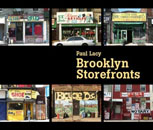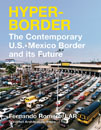Book Digest: February 25, 2008
Last week I introduced my new headline-grabbing, star-fucking, gambit—which entails begging various writers of my acquaintance to offer some literary tidbit that I may incorporate into this space. This week, Chip Kidd:
The Eighth Day
Revolution in Mind: The Creation of Psychoanalysis by George Makari

Better to have used Karl Kraus’s aphorism about psychoanalysis—“the disease whose therapy it pretends to be”—as a title. In any case, a new history of the “talking cure” movement is probably in order and historian of psychiatry and psychoanalysis Makari updates the narrative, spotlighting a fascinating ensemble of characters: Eugen Bleuler, Carl Jung, Alfred Adler, Sándor Ferenczi, Wilhelm Reich, and Melanie Klein. Most of these went on to form or profess their own deviations from Papa Sigmund. Personally, the history of the movement and its tributaries reads better than the ur-texts (Civilization and Its Discontents, etc.).
» Read an excerpt from Revolution in Mind
Ravens in the Storm: A Personal History of the 1960s Anti-War Movement by Carl Oglesby

If you think there is something to be learned (I do) from reading the life of a war resister from the last great schismatic conflict in American history (Nicaragua, Panama, Grenada are mere offshoots of Vietnam), then former Students for a Democratic Society apparatchik and Venceremos Brigade founder Oglesby’s story is a great one to read.
Fanon by John Edgar Wideman

There was a time in my undergraduate years that Franz Fanon’s magnum opus The Wretched of the Earth adorned the bookshelves and student union tables on par with Mao’s Little Red Book. A radical political theorist, Fanon was born in the Caribbean of African descent, fought for France in World War II—and against it in the Algerian independence war—and inspired a generation of rebels and revolutionaries, not to mention countless prep-school sophomores. Wideman, who has not published a novel in about a decade, uses as the conceit of the story of an author who is writing about Fanon and his cultural milieu. Jonathan Liu nails it:
Katyn: A Crime Without Punishment edited by Anna Cienciala, Natalia Lebedeva, and Wojeciech Materski

Even a slight acquaintance with modern European history and World War II lends easy recall to the story of Katyn Forest, where in 1940 the Soviet secret police executed—murdered, if you like—14,500 Polish prisoners (plus another 7,500 at Kharkov and Tver). Polish diplomacy historian Cienciala assembles 122 documents and exhaustively presents this lucid indictment of the Soviets for this terrible crime.
Human Smoke: The Beginnings of World War II, the End of Civilization by Nicholson Baker

As Voltaire mused, “History is the lie commonly agreed upon.” Baker, who has written some very fine things—fiction, factual, or contemplative—muses on and assembles a riveting collection of hundreds of anecdotes, quotes, newspaper reports, diary entries, and assorted first-person reports in surveying the lead-up to the U.S.’s entry into World War II. Baker nimbly employs the fragmentary approach used by Eduardo Galeano in Memory of Fire and John Dos Passos in his U.S.A. trilogy before him. An excellent contrapuntal account against the Ken Burns view of the so-called “War.” Also, guess what the title refers to?
» Read an excerpt from Human Smoke
Woman’s World by Graham Rawle

Collage artist and writer Rawle creates a novel entirely from fragments of text cut out of early 1960s women’s magazines. In the story, transvestite Norma Fontaine/Roy Little lives in a provincial English town and in “a perfect woman’s world of handy tips and sensible advice.” Kind of a neat idea, don’t you think?
» Read excerpts from Women’s World
The Executor by Michael Krüger, translated by John Hargraves

German publisher and writer Krüger details the story of the disposition of a great writer’s estate that includes a menagerie of pets, voluminous documents and correspondence, books, an unpublished magnum opus, and three competitive women committed to securing whatever they perceive as their rightful due. All this, aspiring to ribald mayhem.
The Match by Romesh Gunesekera

Booker Prize nominee and Sri Lankan expatriate Gunesekera’s fourth novel follows the life of a Sri Lankan teenager, Sunny, as he wends his way from his idyll in ‘70s Manila to his adulthood in England with a brief return to Sri Lanka while its ethnic strife is yet unresolved. As is to be expected, stories that range over many countries and decades tend to be about identity and the attendant concerns about its loss or difficulties in comprehending that fluid concept.
» Read an excerpt from The Match
Brooklyn Storefronts by Paul Lacy

These kinds of monographs are useful and occasionally inspired. Lacy has lived in Brooklyn for more than 20 years and has been collecting images of local storefronts on his regular bicycle meanderings through the neighborhoods. Given the diversity of this New York borough and its ongoing metamorphoses, Lacy’s photos make for both interesting pictures and cultural anthropology.
The Silver Swan by Benjamin Black

John Banville (The Untouchable) has adopted the amusement that some serious literary fiction practitioners (Julian Barnes, Joyce Carol Oates) occasionally succumb to, and has written three crime stories under the pen name Benjamin Black—Christine Falls, The Silver Swan, and coming shortly (more or less), The Lemur. The protagonist, Irish pathologist Quirke, stays on the wagon and sticks his nose into dangerous matters while trying to sort out messy affairs with his estranged daughter and his critically ill surrogate father. And, oh yes, there is the ghost of his recently deceased wife. Pick your story thread (and I haven’t even told you what Quirke is investigating), Black/Banville delivers the chills and thrills.
» Read an excerpt [pdf] from The Silver Swan
Hyperborder: The Contemporary U.S.-Mexico Border and Its Future by Fernando Romero

The growing bibliography and information attached to the 2,000-mile-long Mexican-U.S. border would no doubt shock the know-nothing vigilantes, bed-sheet-clad apologists for fences and stringent immigration regulations, and rabid anti-Mexican racial slanderers. Starting with Jim Harrison’s insightful and passionate piece On the Border (that ran in Men’s Journal in the early years of the new millennium) and Barry Gifford’s Bordertown, there are numerous vivid and varied accounts of the United States’s southern border (not to mention a culture that is neither American or Mexican). The tome under discussion is a cross-disciplinary review of numerous issues that are inherent in and generated by this most active of national borders on the planet. Additionally, the book’s design (explained by its publication by the Princeton Architectural Press) is reminiscent of books like Rem Koolhaas’s Content and Bruce Mau’s Massive Change.
America Unzipped: In Search of Sex and Satisfaction by Brian Alexander

Actually, I can’t think of many subjects I would find less interesting than American sexual preferences, mores, and practices. That’s just me. Apparently glossy magazine editor Alexander, who writes MSNBC’s “Sexploration” column, discovered that the evaporation of privacy all manner of people revealed shocking, shocking, shocking habits, and thus he embarked on a further investigation of matters carnal—or, as his publisher notes in a quaint turn of a phrase, a “sexual safari.”
» Read an excerpt from America Unzipped
